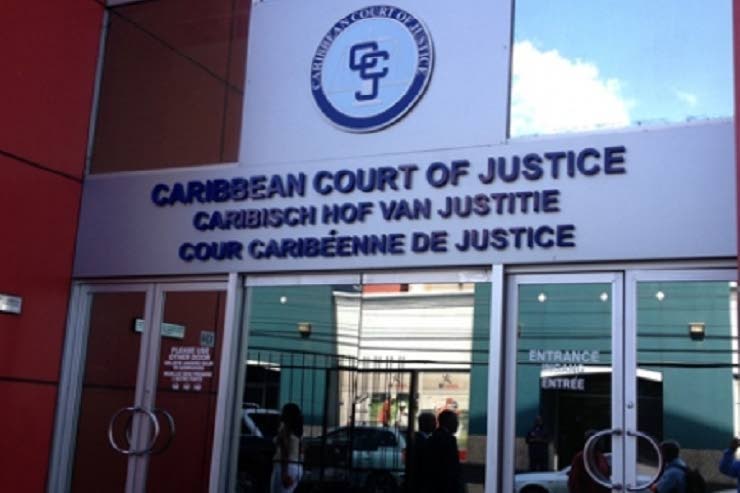CCJ reserves decision in regional case over Clico bailout

The Caribbean Court of Justice (CCJ) has reserved its decision on a claim filed by a group of citizens and institutions from Antigua and Barbuda and Grenada against the Government of TT over the 2009 collapse of CL Financial and its subsidiary British American Insurance Co Ltd (BAICO).
On April 30, CCJ president Justice Adrian Saunders and Justices Winston Anderson, Maureen Rajnauth-Lee, Andrew Burgess and Peter Jamadar reserved their ruling on the complaint over alleged discriminatory practices by the TT Government.
The group’s members are claiming that the Government discriminated against them when it decided to bail out CL Financial (CLF) and its local subsidiaries Colonial Life Insurance Company (Trinidad) Ltd (Clico), Clico Investment Bank (CIB), and British American Insurance Company (Trinidad) Ltd (BAT) in 2009.
The group alleged that while local policyholders were protected and essentially guaranteed their full investments, they were only able to recoup approximately 14 per cent through the liquidation of the regional subsidiary.
They contended that the action amounted to discrimination on the grounds of nationality and was in breach of Article 7 of the Revised Treaty of Chaguaramas (RTC).
They further contended that the action also breached Articles 36 and 184(1)(j) of the RTC, which deals with the cross-border provision of services and measures taken by member states to provide redress for regional consumers.
However, in March 2023, the judges dismissed part of the complaint, while allowing the group to continue to pursue its argument of an alleged breach of Article 184(1)(j) (failure to promote the interests of consumers in the Community) and Article 7.
King’s Counsel Simon Davenport, who leads a team for the BAICO shareholders, argued that assets of BAICO, the Bahamas-registered insurance subsidiary, were put into a common pot by CLF, but should have been segregated to meet BAICO’s liabilities.
The TT Government, he said, should not be allowed to “have its cake and eat it too” by depriving BAICO of its assets without meeting its liabilities.
“Notwithstanding the entities and regulatory environments, our position is that the TT Government brought into a common pot the resources of BAICO, and in exercising the bailout activity, it should have done so on a non-discriminatory basis.
“TT refused to pay BAICO liabilities from the common pot,” Davenport said, insisting that BAICO was entitled to its liabilities in the same way the other CLF subsidiaries had benefited from the bailout.
He said the move unfairly affected the lives of “thousands of families across the Caribbean many of whom lost their savings, retirement and pension benefits, leading to immeasurable hardships.”
“This is a story of inequity…People are dying of poverty as a consequence of this.”
The group’s attorneys also argued that national interest did not displace the RTC.
Rejecting the group’s claims, Senior Counsel Deborah Peake, who represents the Government, said the group’s litigation was a stretch that had no ground at all.
“It is hopeless, without merit, and should be dismissed.”
She said the RTC was for free trade within the customs union and was not aimed at frustrating a government from protecting its country, as Clico’s collapse posed serious repercussions for TT.
She said when the memorandum of understanding was signed for the bailout, it was for CIB, Clico and BAT, not the other subsidiaries of CL Financial.
“This case assumes that they were under consideration.”
She also said the group had to prove that the Government knowingly excluded regional policyholders.
On a promise to pay US$100 million to shareholders, she said the Government paid US$36 million, but was denied a loan to cover the remainder.
“Where are taxpayers finding funds to treat all subsidiaries in the same way?”
Also making submissions at the two-day hearing was Caricom.
In 2017, the Government successfully petitioned High Court Judge Kelvin Ramcharan to liquidate CLF to clear the remainder of the debt it incurred in rescuing the cash-strapped conglomerate. The process is still ongoing.
In December last year, the Central Bank relinquished emergency control of Clico.

Comments
"CCJ reserves decision in regional case over Clico bailout"